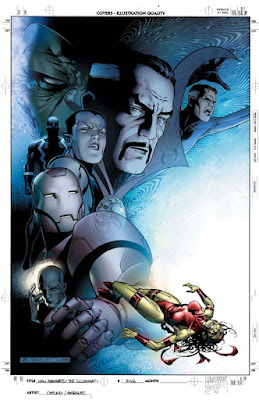
Some folks might say that Duran Duran has used up their share of comebacks. Every time the powers that be might think that they’re has-beens or far too old to be in the business, they pop back up. They’ve done it with previous releases like “Notorious,” “Big Thing” the so-called ‘Wedding Album,’ and “Thank You.”
And here they are again. The new album, Red Carpet Massacre, was released earlier this month, and again represents a change in sound while still retaining that trademark vintage DD vibe. This time the Pretty Boy Five, sans Andy Taylor, recruited new blood like Justin Timberlake and Timbaland to write and produce.
There was to be a new album called “Reportage,” fifteen tracks worth say the rumors, but when Andy Taylor parted ways with the boys, for what has been termed ‘irreconcilable differences,’ they set aside the material he was part of and continued on with Timberlake and Timbaland. DD continue with Dominic Brown on guitar.
 Now while I can’t say I’m all that impressed with the single, “Falling Down,” which almost recalls an electronic ghost of “Ordinary World,” the rest of the album is superb. "She's Too Much" which is to "Come Undone" what the above song tries to do, but it succeeds on its own, the echo only accentuating the sound. Similarly, "Box Full o' Honey" wants to be "Save a Prayer" but remains original as well.
Now while I can’t say I’m all that impressed with the single, “Falling Down,” which almost recalls an electronic ghost of “Ordinary World,” the rest of the album is superb. "She's Too Much" which is to "Come Undone" what the above song tries to do, but it succeeds on its own, the echo only accentuating the sound. Similarly, "Box Full o' Honey" wants to be "Save a Prayer" but remains original as well. The funk comes out to play with the best tracks on the disc, "Nite Runner", "Skin Divers" and the title tune. These are the most Timb-affected songs on the album and come off quite well. "Skin Divers" has all the magic realism lyrics of the original Duran Duran days and "Nite Runner" is my favorite by far.
I think "Red Carpet Massacre" is a critical triumph even if it doesn't make its way to the top of the charts. Don't call it a comeback, it's just Duran Duran holding on to their new romantic roots, while continuing to evolve. Great stuff!












